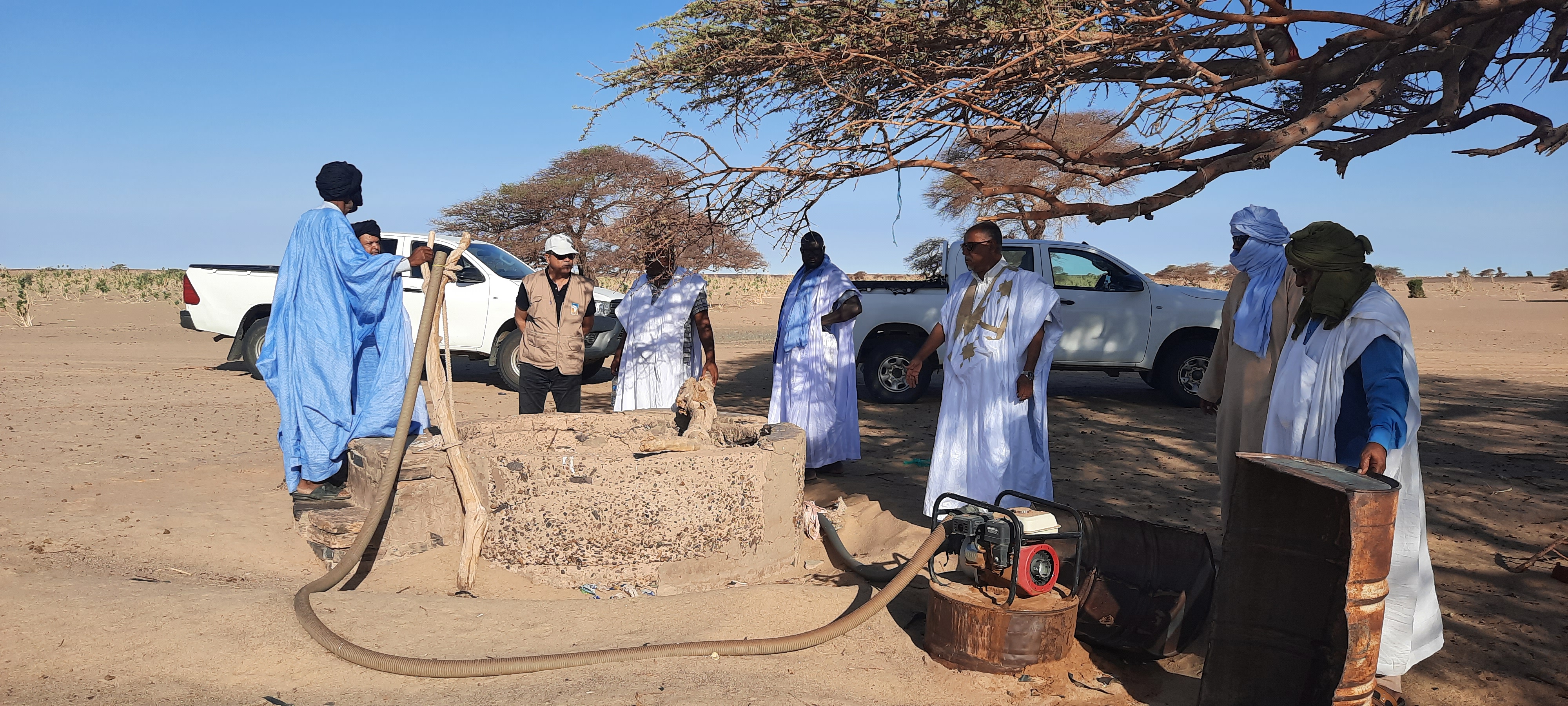
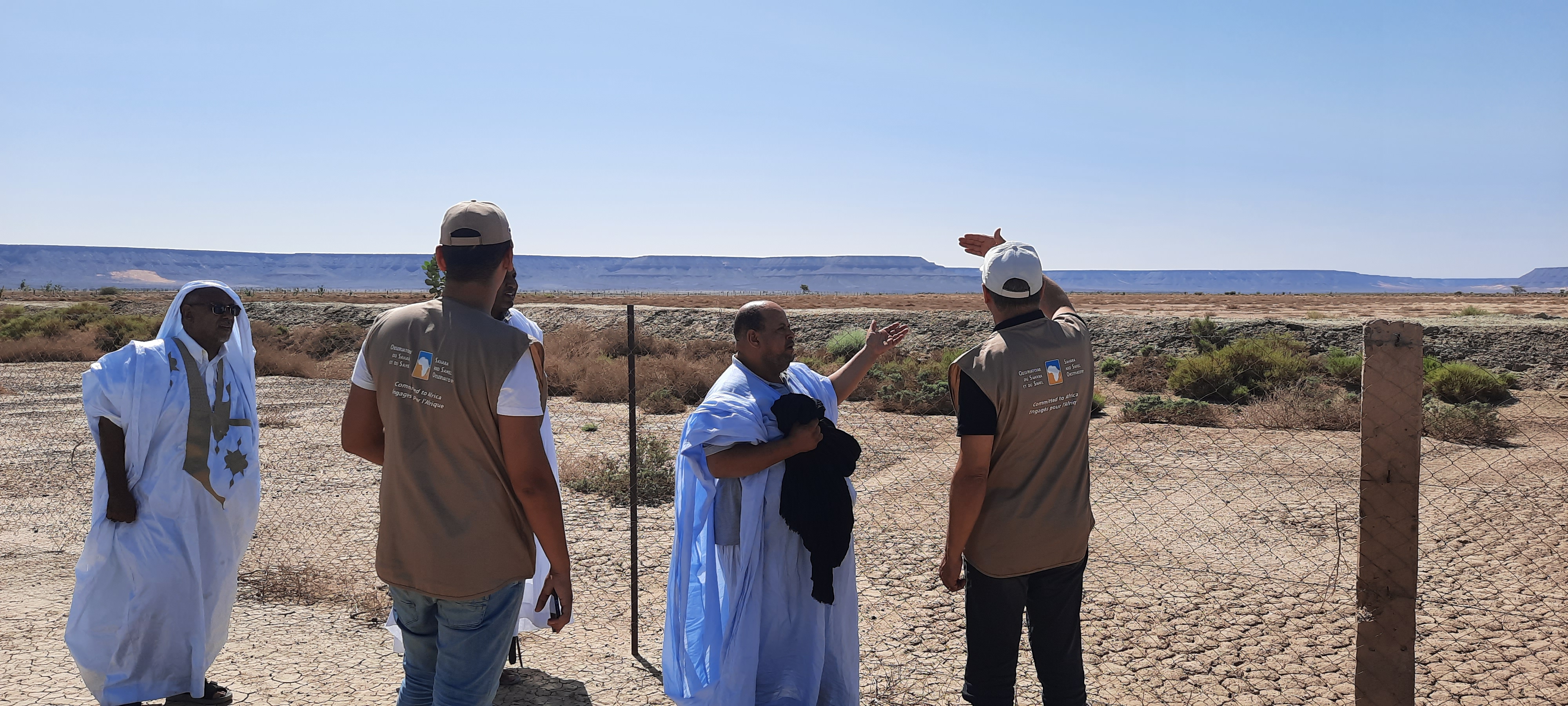
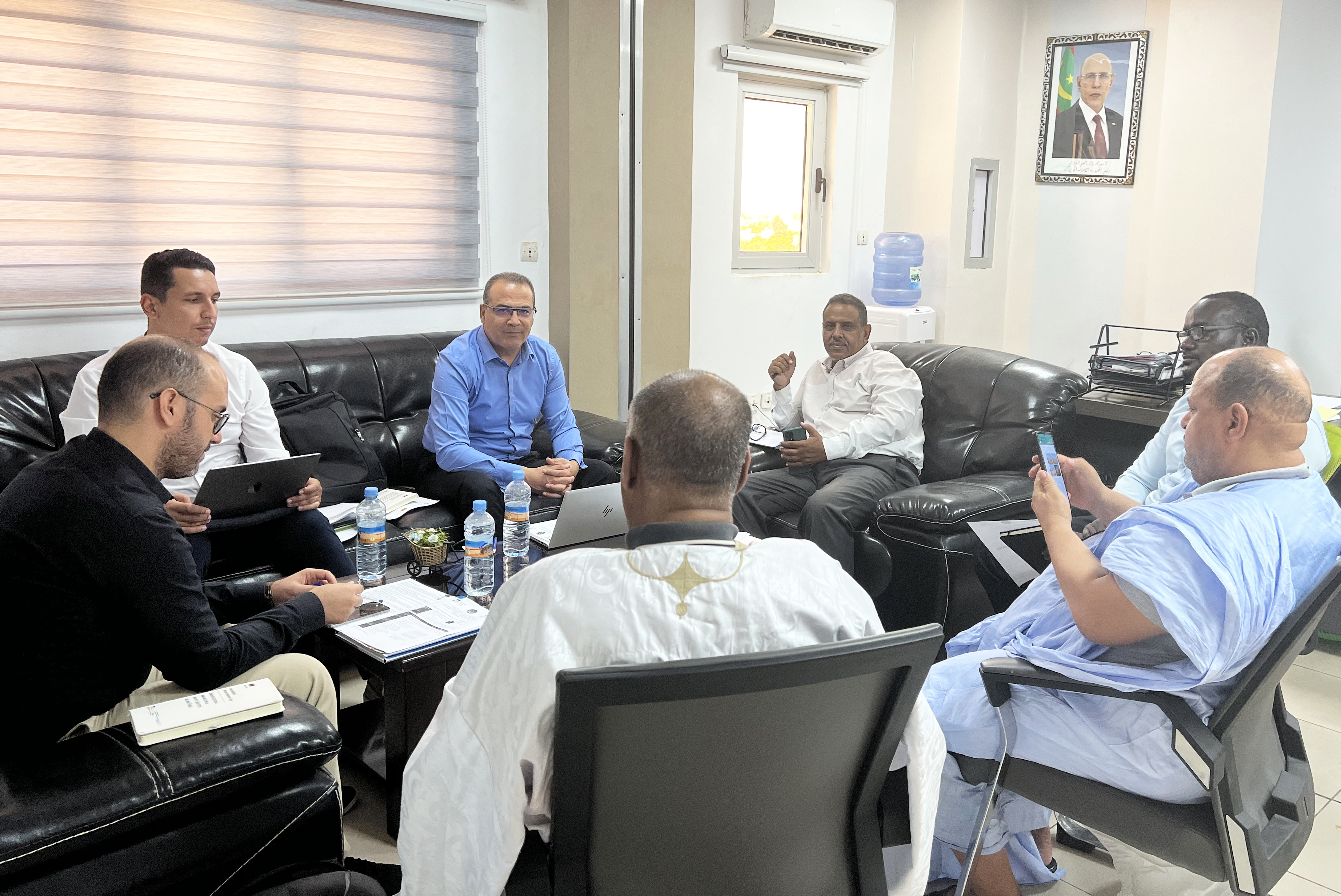
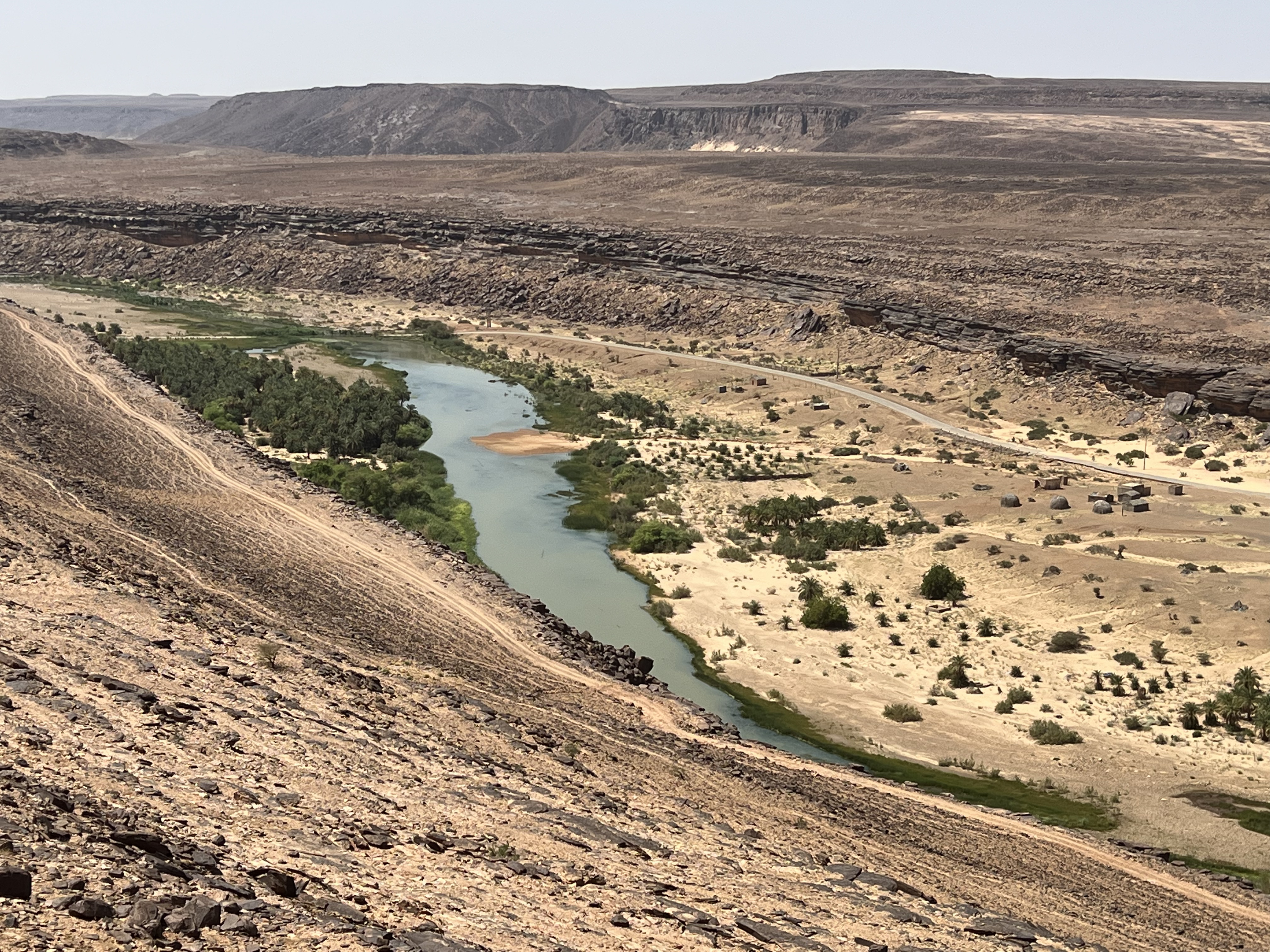

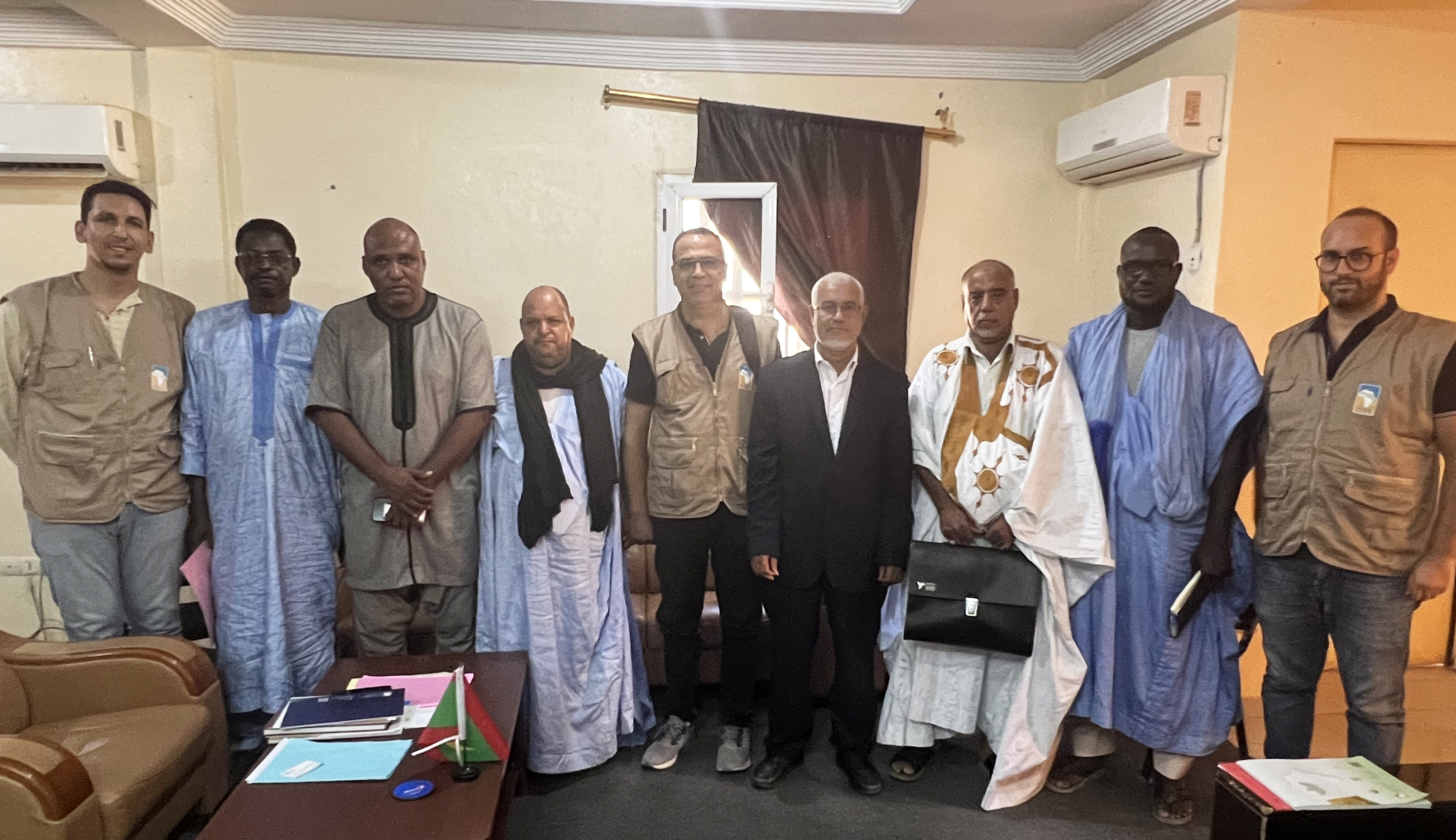
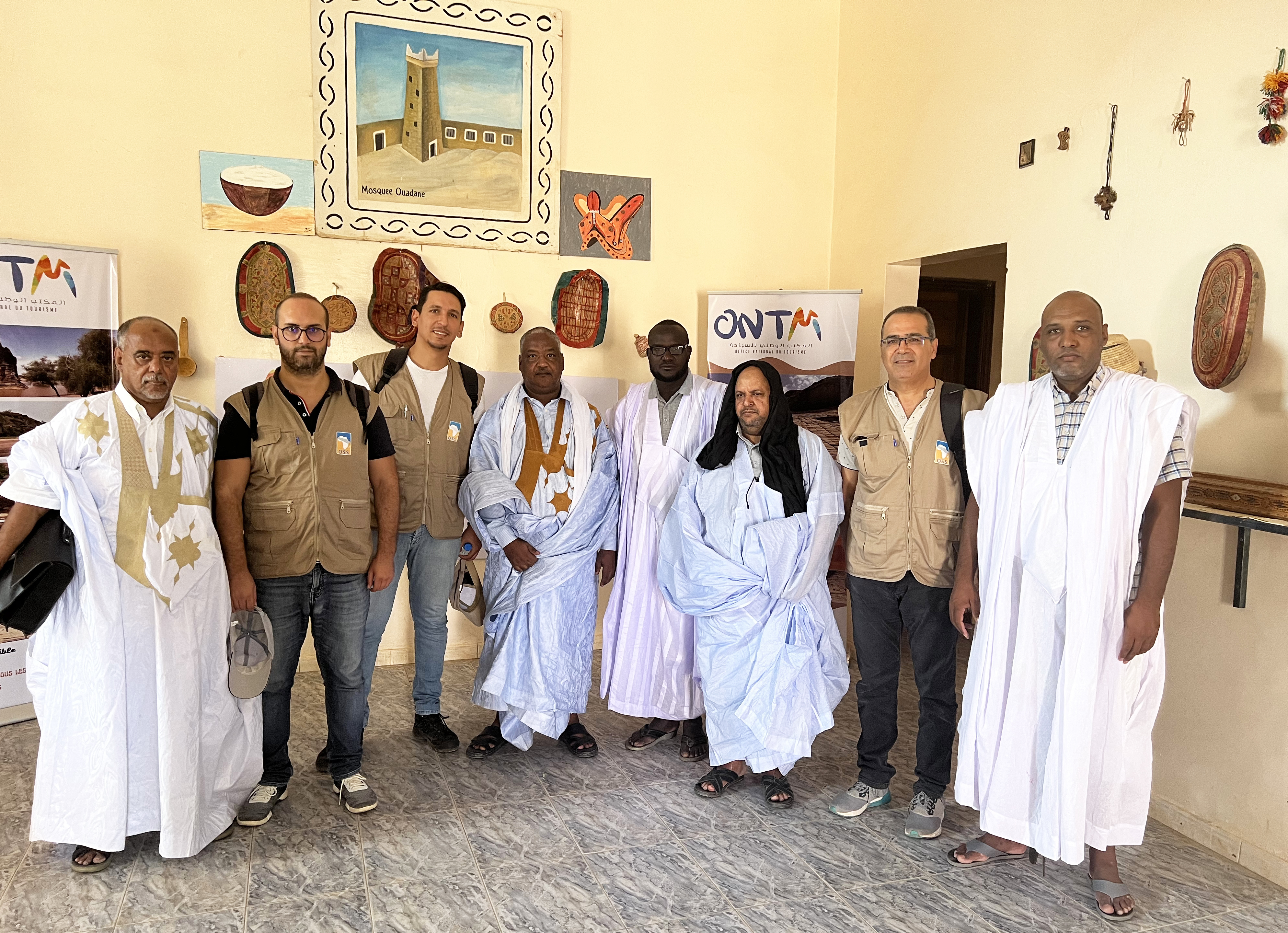
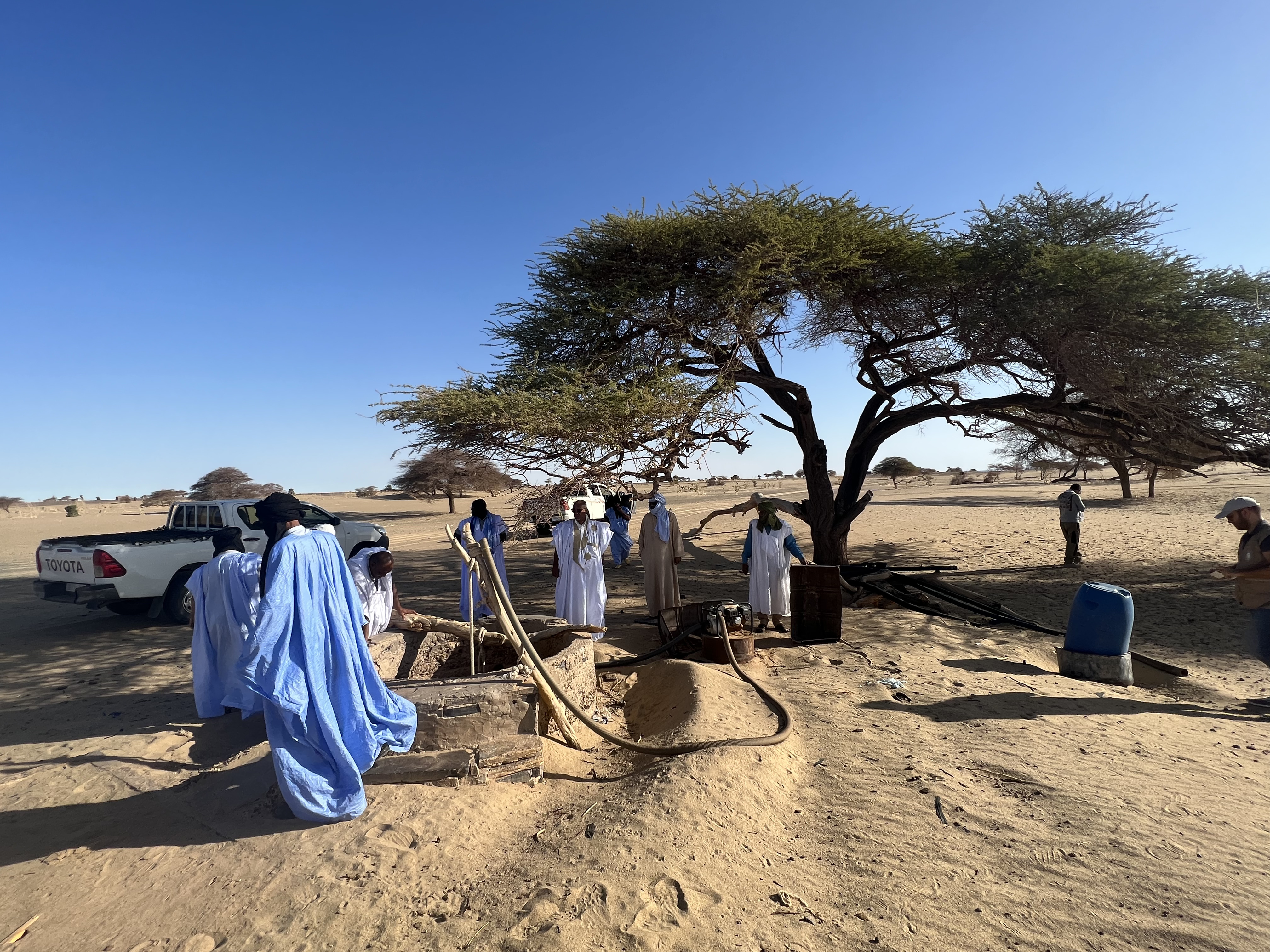
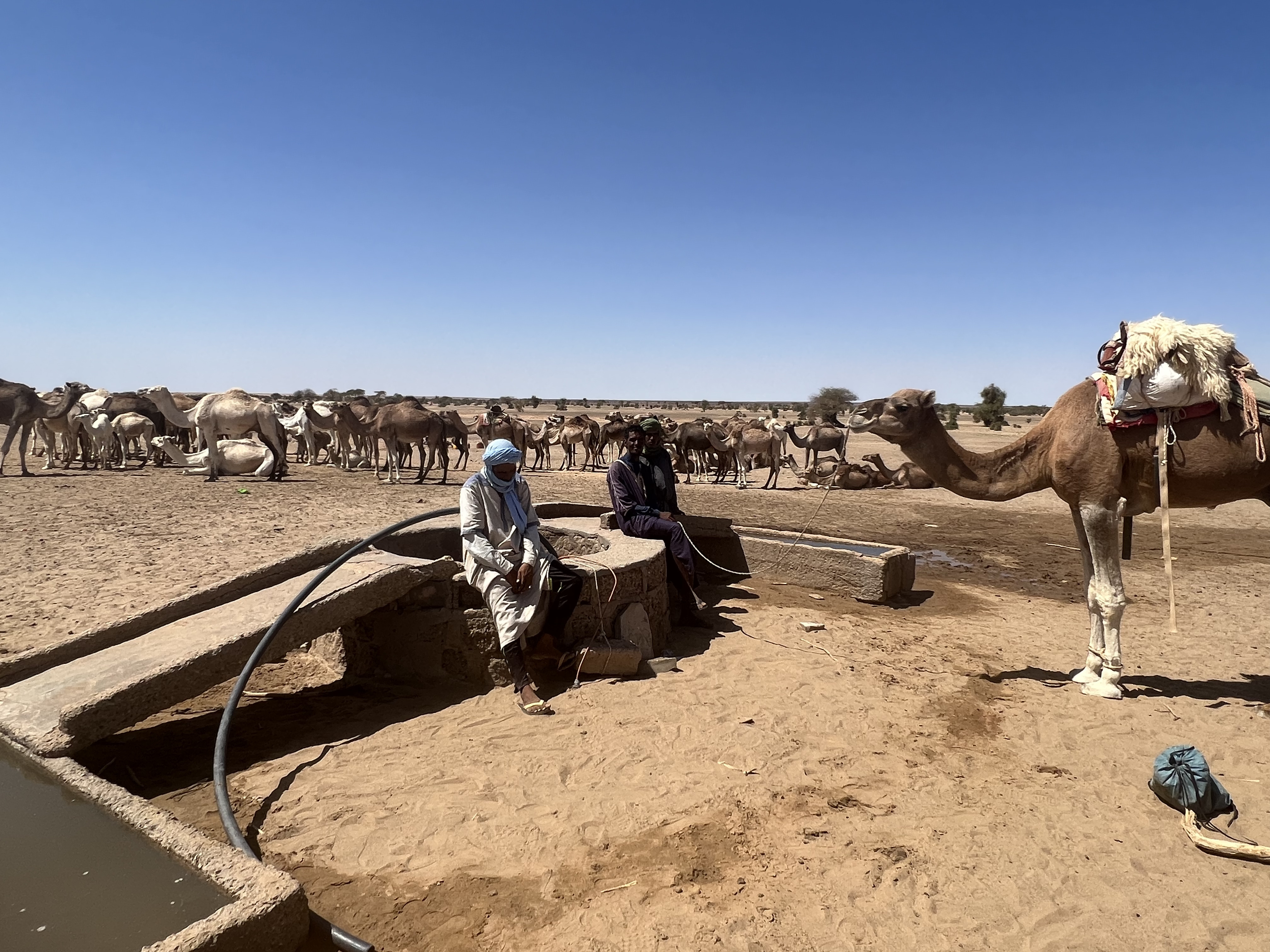
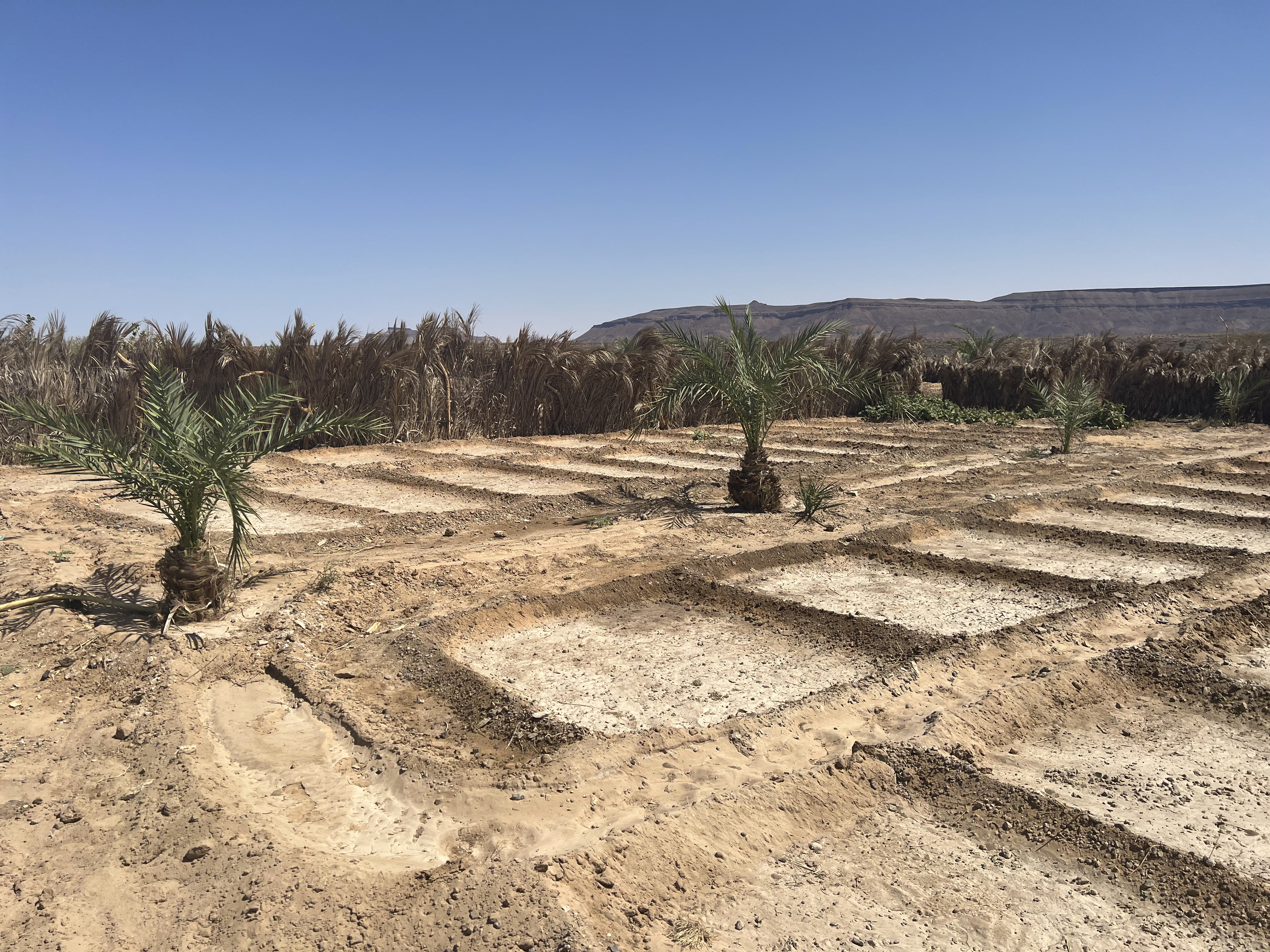
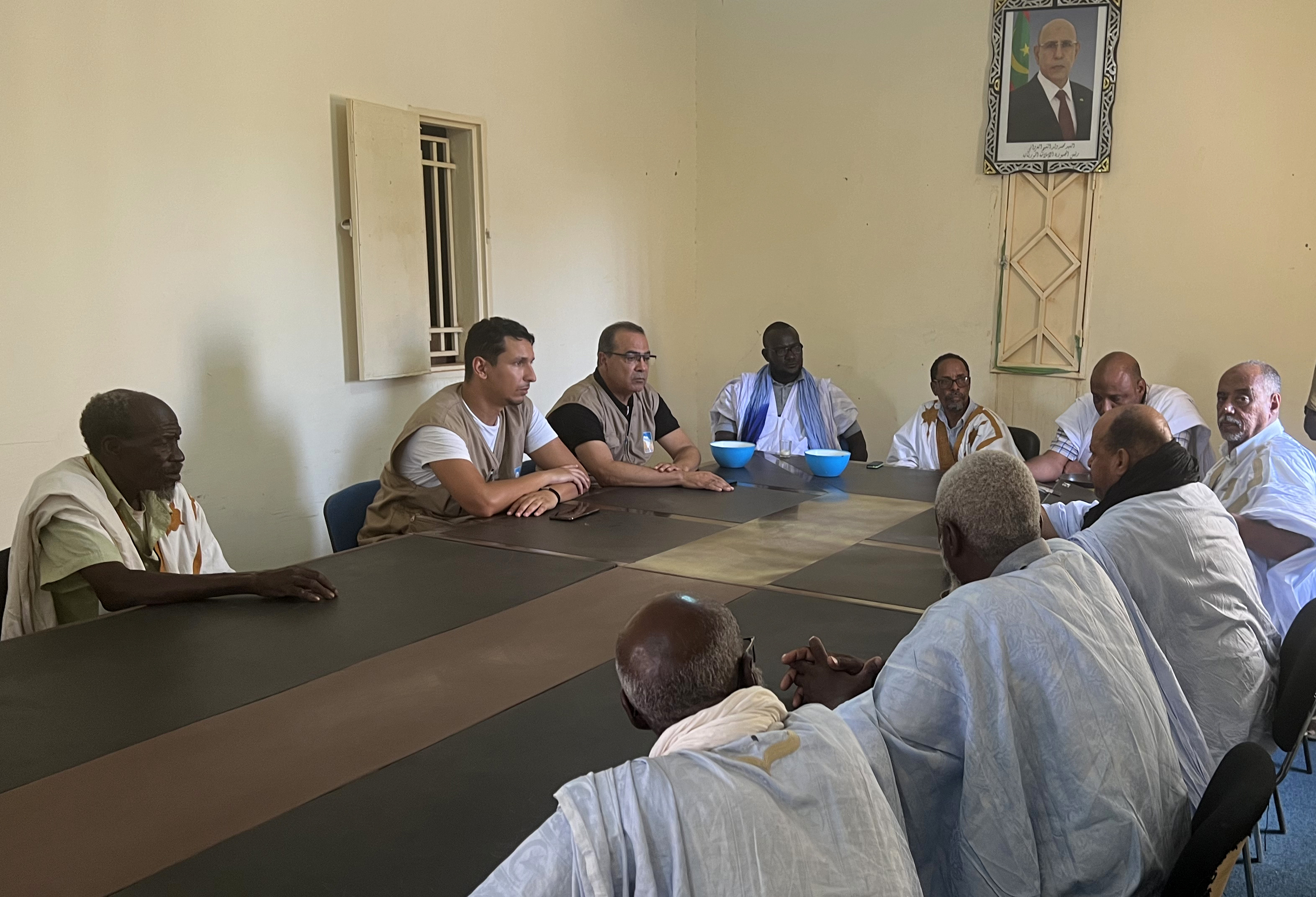
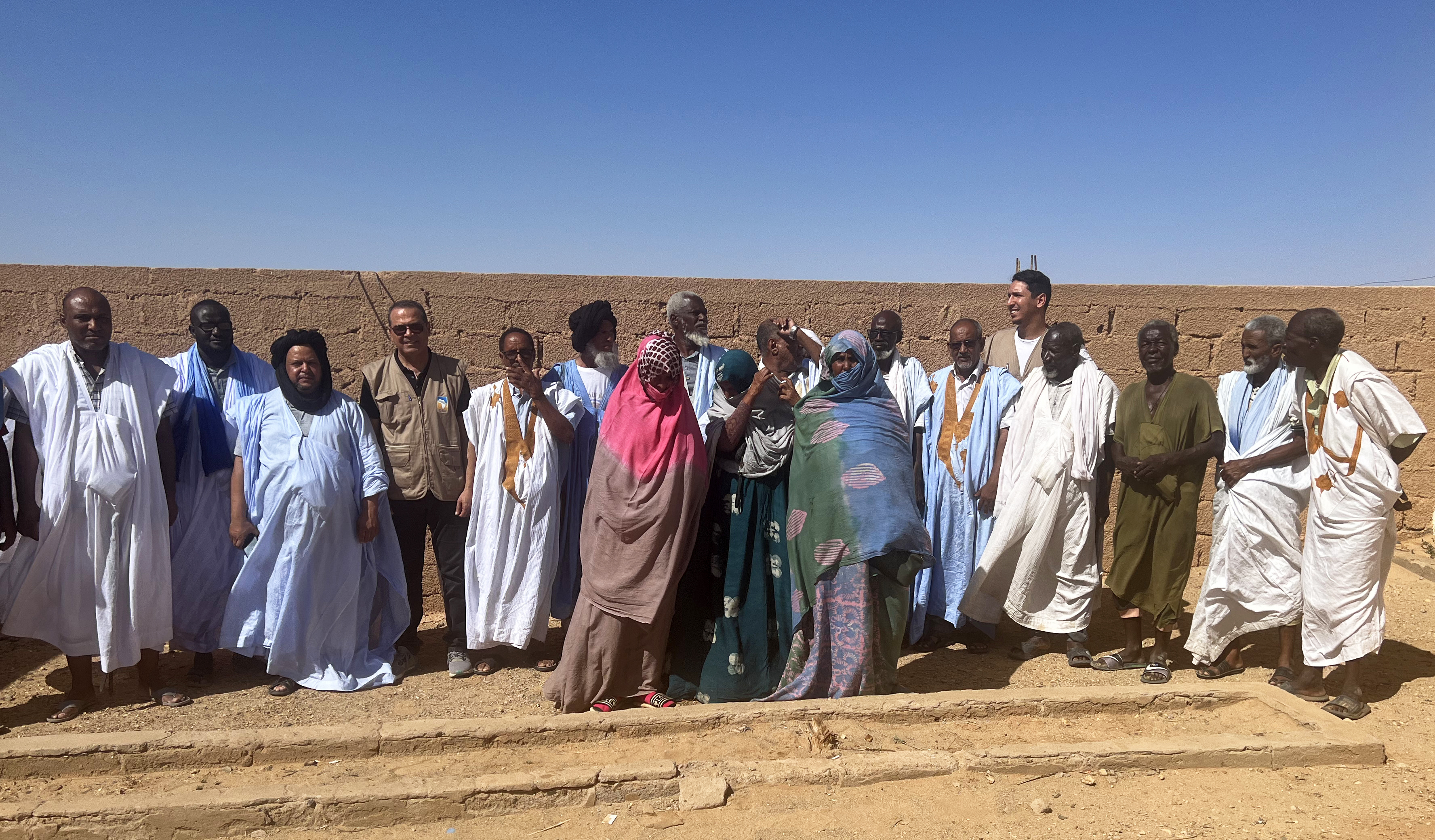
Consultations as part of the Adrar Oasis project document development process in Mauritania
In collaboration with the Ministry of the Environment of Mauritania and the SOS Oasis (NGO), the Sahara and Sahel Observatory organized, from October 17 to 21, 2023, a series of consultations with the stakeholders of the “Improving the resilience of communities in the agropastoral and oasis ecosystems of Ziyara and Dhaya to the harmful effects of climate change in the Adrar region of Mauritania” project.
The process began with a meeting at the headquarters of the Ministry of the Environment with the Adaptation Fund Focal Point, his colleagues and representatives of SOS Oasis which made it possible to conclude the meetings and field visits in the Adrar region.
The local-level meetings started on Thursday October 19, 2023 with a courtesy visit to the authorities of the region, in particular the Wali of Adrar and the prefect of Atar who made the commitment to take all necessary measures to accompany the completion of the process.
Several exchange meetings took place throughout the three-day mission. The first meeting included the representatives of the technical services of the Environment, Water, Agriculture, Livestock and Social Affairs, Children and Family, as well as the representatives of other ongoing initiatives in the region. Discussions focused on the issues affecting the project areas of intervention, their impact and the possible solutions to meet the needs of ecosystems and communities.
Then, meetings brought together the local communities of the project areas of intervention, respectively in the Dhaya pole, on October 20, 2023 and in the Ziyara pole, on October 21, 2023. They allowed to different groups (farmers, breeders, women and young people) to share their concerns, needs and suggestions to improve their socio-economic situation.
Field visits provided a more complete vision of the oasis and agropastoral ecosystems situation in the two centers, and went over the possibilities of improvement within the framework of the project. A restitution session on the local consultations’ outcomes was organized at the Tawaz town hall and marked the end of the field mission.
Finally, there were visits to the Date Palm Patho-bio-technology Laboratory and to the gene bank of local date palm species, located in Atar. Discussions made it possible to have a clearer vision on how they work, thus opening avenues to potential cooperation, which could contribute to achieving the project's objectives.
These local-level meetings and consultations made it possible to better identify the issues ahead of the project, in particular the repeated food crises caused by long periods of drought and the waves of rural exodus which have disrupted social cohesion in some villages. The next stage of the process will consist of the development of complementary thematic studies and the organization of the national workshop to validate the project document to be submitted to the AF in early 2024.